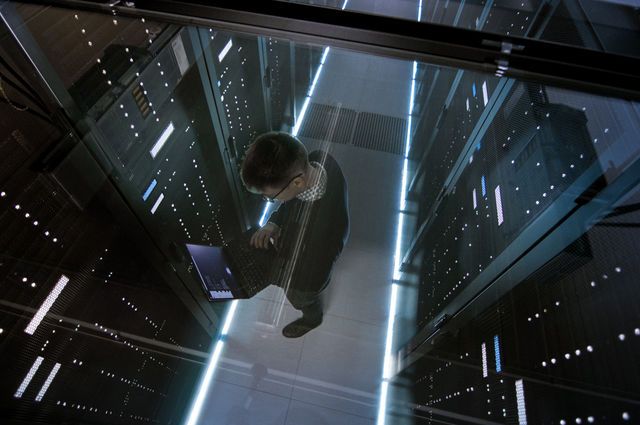Which technologies & apps will have the greatest impact in 2022?
18 experts shared their view
The pandemic accelerated digital transformation by 10 years (McKinsey & Company) and today's travel consumers have become more digitally and tech-savvy than ever. Many of today's travelers' service expectations are around self-service, around do-it-yourself, from online planning and booking, to preferences for contactless check-in, mobile keys, voice assistants, and communication with hotel staff via messaging. Serious technology implementations are needed to "appease" these exceedingly tech-savvy guests and their exceedingly high technology expectations. At the same time, two other extremely important issues are plaguing the industry today that need immediate resolution: a) never-ending labor shortages, b) unsustainable labor costs. Only through accelerated investments in technology - cloud, mobility, AI, robotics, IoT, and other next-gen technology applications and innovations - can the hospitality industry do more with fewer employees and solve the three major industry issues outlined above.
The question is, what are these top technology applications that can have the greatest impact in hospitality in 2022?
For me, the key is self-serve via automation. Staff turnover will remain high so starters/leavers/movers processes need to be totally automated. Restaurant menu changes and price changes need to be linked end to end to inventory systems. We can't afford to have humans checking other human activity. Tools like Workato, UiPath, Automation Anywhere are well,placed to help here. Also system simplification. Strip out those multiple PMSes, POSes, HR systems etc. invest in central data lakes to bring your data together and spot correlations that might lead to new business opportunities.
Prior to the pandemic, meeting tech-savvy travellers expectations and addressing labour challenges were not two terms mentioned in the same sentence. But now, and thanks to advancement in technology and automation this looks more like a match made in heaven.
In hospitality, the new traveller is no longer motivated only by price and quality. Those are still important but there are new guest values that come into play when choosing their travel: health and safety, ease and convenience, booking flexibility, care, trust, reputation, sustainable products. Many consumers say they are willing to pay extra for these options, and even to switch to a different brand if needed. This represents a huge opportunity for hospitality organizations that “get it right”.
This is where technology will play a key role in 2022 and beyond in helping hoteliers meet these new expectations. For example: technology for personalized offers and engagement to improve service and personal care; cloud technology to keep guest data secure and use it responsibly to instill trust and improve brand reputation; contactless solutions to give guest the ease and convenience they are looking for; technology with automated workflows that takes over administrative, repetitive tasks which allows employees to focus more fully on physical Health and Safety related matters and of course on the overall experience of the guest.
Automation will continue its trend in 2022, through technologies powered by AI/ML. Many hoteliers have already adopted automated tools such as Chatbots and Contactless Apps which are a win-win for the guest and hoteliers, and when done right can provide guests with human-like technology to manage their stay and giving staff back valuable time. Automation can also reap huge operational benefits, from robotic tools to load rates, through to automation around room assignments, housekeeping and end of day processes, as well as the hotelier's utopia of driving revenue through automatic upselling tools and revenue management.
The success of adapting to this new way of working hand in hand with automation is reliant on having a sound technology foundation. Legacy on-premise solutions will fail to keep up overtime. Cloud is an imperative in the journey to agility and automation, it is designed to bring together hotels and hospitality vendors into an automated world that fosters on-going innovation and speed to market.
While guests are looking for new experiences that recapture the joy of travelling, there is enormous opportunity for hoteliers to acquire new customers. Guests are looking for brands that provide experiences more in tune with their new values, with good business practices, that not just promise a great experience but are also able to execute on that promise. In order for this to become reality, technology is key to help organizations connect all the relevant data, and deliver it in real time to all the departments. This is not going to be possible with the traditional divide between a PMS, a CRS, CRM or a separated SEM solution. Those old silos are a thing of the past, we believe in the rise of hospitality platforms across operations, sales and marketing and financials with a single view of the guest. That's exactly what we are doing at Oracle Hospitality with OPERA Cloud, a modular platform for the hospitality industry.
On top of living in one of the most beautiful places in the world, I'm lucky that in my role as director of the Master's in Hospitality Strategy and Digital Transformation at Les Roches (also home of the Spark Hospitality Innovation hub), a big part of my job is looking at emerging technology in the hotel ecosystem.
Overall, it is impossible to overlook the impact that artificial intelligence and machine learning will have across a wide spectrum of the industry. The most obvious one is AI helping hotelier's optimize revenue, by reducing the ever-increasing amount of available data into something manageable.
AI is also already poised to deliver the digital marketer's Holy Grail: Personalization. The only obstacles that remain are how to provide clean enough data to start with and to clearly define the line that should maintained to prevent personalization from becoming creepy.
In addition to this direct application of artificial intelligence, there are several technologies that are already in use in other industries that are showing great promise in hospitality, that are only possible because of AI. My favorite is facial and object recognition. In my career at the property level, I am sure I spent hundreds of hours searching for people and things, and the proper use of this technology would allow hotels to know where all their high value items are at any time.
In partnership with an existing facial recognition technology provider, two of our master's students recently completed a capstone project resulting in a very promising application that uses this facial recognition anonymously, alleviating the innkeeper's fundamental concern for their guest's privacy, to measure a restaurant's service standards and revenue management KPIs in real time.
When the dust settles, a lasting impact of COVID accelerating digital transformation will be a widening of the already-existing gap between the hotels that are on top of their tech, and the ones who are not.
The urgent issues currently plaguing the hospitality industry will dictate which areas of technology have the biggest impact in 2022. With pronounced labor shortages and unsustainable labor costs heavily burdening hoteliers around the world, technology that can lower operational costs and increase efficiency will allow hoteliers to rebound — and ultimately thrive — in the “new normal.” The key to this technology will be the management and application of data.
New data platforms, like Cendyn's Starling Customer Data Platform (CDP), use cloud technology to eliminate the integration issues that caused so many hotels to fall behind. While seamlessly integrating all hospitality solutions – such as CRM, CMS, PMS, and RMS, hoteliers are not only able to save resources, but they can finally unlock the power of clean data. This establishes the framework for marketing automation and personalized experiences, which lower guest acquisition costs and increase lifetime value — all while using less manpower.
There are countless innovative technologies currently in development, but those will all require time to improve and refine for the hospitality industry. And while the hospitality industry is in a much better place now than it was for the past two years, hotels with a centralized database of clean, cataloged data will be in a position to react more effectively and take advantage of new technologies as they become available.
The year 2022 will remain as the year of recovery and a possible return to the “previous normal”. After the tough and challenging period, now it is time for hotels to revive and improve their position on the market. Technologies are among the most efficient tools to do it.
Considering the limited time and available financial resources in the post-pandemics age, in 2022 hotels would prefer technologies that require the least investment. Moreover, the deteriorating demographic crisis will press hoteliers to find reasonable alternatives to compensate for the lack of employees. Chatbots and virtual concierges would become more popular and useful. They are easy to integrate and comparatively cheap, hence their impact will continue to grow.
On the other hand, contactless and self-serve technologies evidenced significant growth, enhanced by the demand for physical distancing. Individual travellers found the convenience of self-service apps and the advantage of feeling safe and independent through touchless transactions. In this regard, the impact of those technologies will increase, and more hotels would adopt them. In addition, contactless technologies would spread in the other hotel departments, apart from the front office and F&B outlets.
The pandemic has created digital cultures and processes that are here to stay, although sadly the utopian future of truly frictionless travel won't be achieved in the next twelve months. Self-service options have crossed the bridge from 'nice-to-have' to 'must-have' and will soon be the norm, rather than the exception. Travellers have never been more digitally literate and expect to be able to choose a contactless customer journey if they wish, even now the health crisis has somewhat abated. (In case there was any doubt about how ubiquitous this is set to become, Hilton's 2022 Trend Report details their vison of achieving convenient and contactless experiences as standard across all its properties - including Digital Check-In, Digital Key, Digital Check-Out, and in-room control.)
To date, mobile key has been a sticking point, given a user experience that is objectively inferior to the ease and simplicity offered by traditional hotel key cards. Now that Apple has finally announced that it will be possible to store hotel keys in the Apple Wallet (meaning you will be able open a hotel door from a personal mobile device without having to first unlock it and sign into an app), this looks set to change. The technology is currently being trialled in select Hyatt hotels, before becoming more widely available soon.
Staff apps will be used to streamline processes and improve communication, and integrated IOT devices and Room Management Systems that automatically turn off lights, heat, and air-conditioning in unoccupied rooms will achieve substantial energy savings, adding to the hotel's bottom line.
Most excitingly (although still a few years off), new forms of verifiable digital identity, such as the European Digital Identity Wallet (due to be trialled before the end of the year), will transform the way we share personal data and pay for services, simultaneously improving data security, achieving relevant personalisation and saving vast amounts of time. (Anyone interested in finding out more should check out the work of the Decentralized Identity Foundation Hospitality and Travel Special Interest Group.)
For hotels that get it right, the efficiencies that can be achieved will be impressive:
- “Live customer service channels (phone, live chat, email) cost $8.01 per contact, on average, vs just $0.10 for self-service channels (websites, mobile apps).” Gartner
- “Linking the hotel's reservation system and energy management system to an automated check-out system to keep an unsold room ventilated but with minimal heating and cooling can reduce energy costs by 35-45%, with a utility savings of 50-75%.” Energy Star
- “Occupancy sensors that can dim or turn off lights when no one is in the room can reduce electricity usage by 30%.” Energy Star
- “Daylight sensors that adjust the artificial light in the room to the amount of natural light in a room can reduce electricity usage by 40%.” Energy Star
- “Institutions using high-assurance digital identity for registration could see up to a 90% reduction in costs for customer onboarding.” McKinsey
Market conditions are more dynamic than ever before, especially in our industry. Hotel groups and accommodation providers need to be agile and react to changes quickly. Right now the urgent issues are labor costs and shortages, but hotels need to be prepared for whatever comes next. True open platforms enable this agility by giving hoteliers the freedom to choose apps and build their own components. Creating these tech stacks is very difficult and costly to achieve with existing cloud technologies and legacy providers where everything is centered around the traditional PMS environment.
Accelerating investments in technology need to be future-proof. More and more accommodation providers recognize the benefits of embracing MACH Architecture for their tech stacks, which rely on cloud-native and API-first standards. This architecture is generations ahead of (legacy or cloud) PMSs that have only partially opened up their APIs. With API-first there is a 100% API exposure, meaning every single data point and functionality in the platform is available to hoteliers and 3rd-parties that want to use them.
The benefits to both the hotel chains as well as to development companies are huge. Anybody can connect and disconnect applications easily, without performing open-heart surgery, in order to optimize their own tech stack. The real innovation cannot and will not come from an “all-in-one” PMS, but from all the new & exciting products and people out there.
Examples are workflow automation technologies, new distribution providers such as Hopper or Katanox, great apps for upsell or room selection, and finally new "Rockstar" tech-based hotel concepts such as Limehome, numaGo, WhyHotel, or SV Group with Staykoook and various others. These concepts are young, modern, digital, and attract lots of attention in their market segments from both hotel guests as well as investors. All of them utilize the full capabilities of MACH architecture to power their ideas.
I've always stated that the impact of COVID on tech adoption has been evolutionary, not revolutionary. We were going in that direction anyway, and the pandemic only speeded up the process. This morning, I was discussing with a colleague about the (mis)use of the adjective "smart" in our industry. Contactless check-in, mobile keys, voice assistants, and communication with hotel staff via messaging don't make your hotel "smart." These technologies simply make your hotel, well... A hotel.
Offering these technologies will not give you any competitive advantage. None. As you did stop bragging about providing free Wi-Fi years ago, soon you won't even have to mention that you offer self-check-in. It would be like saying: "Hey, we offer a bed and a pillow in our rooms, aren't we cool?" I am honestly surprised we're still even talking about it in terms of "innovation."
On the subject of labor shortage, of course automation can help, but we should also reconsider the conditions of biological workers. The average salary for a human hotel receptionist is $13.11 per hour in the United States. Are you still wondering why nobody wants to work in hospitality? It's the most overworked and underpaid profession in the world, and I am glad I've stopped being a Hotel General Manager over a decade ago.
But this has less to do with tech and more with politics, so I zip my mouth...
The simple answer is the guest's smartphone and whichever messaging app he or she prefers, whether that's Messenger, WhatsApp, or SMS.Until now, many businesses have held back from messaging guests in the belief that it's reserved for chatting with friends and keeping track of the kids' soccer team or dance classes. This attitude is now changing. The investment-focused hotel news portal Hospitality Insights found messaging guests to be one of the top five hotel trends for 2022.A survey by the NYU Jonathan M. Tisch Center of Hospitality found a higher percentage of hotels had adopted guest messaging platforms during the pandemic than many other tech applications. This percentage is expected to climb higher in 2022.Pre-arrival, guests are looking for two-way communication to ask questions or customize their stay. We can all spot a generic marketing email and most are never opened. A text message in the early stages of the guest journey is much more likely to grab attention. Once on property, messaging is an effective way of delivering and anticipating what the guest wants.Here's a quick example. Our data analysis tells us the optimum time to ask a guest if they need help with their transport back home at the end of their stay. If you send a message too early, it will be ignored; too late and the guest has already booked her own transport.Sent at the optimum time, a direct message to the guest is likely to be successful in securing additional revenue. The same principle can be applied over and over again throughout the guest journey.I was lucky enough to soak up some winter sun in Los Angeles at the start of the year. The American Lodging Investment Summit (ALIS) is where investors sharpen their wits and set agendas for the coming year. In one session, Jeff Wagoner, President and CEO, Outrigger Hospitality Group, said that a simple text message to their on-premise guests drove a 60% uptake on a single offer.Hotels have sometimes shunned technology as they feel that it detracts from a personal service. However, since guests already use messaging as the fulcrum of their daily lives, it makes a lot of sense to harness it to the mutual benefit of the guest, owner and operator.
Technology is evolving faster than ever, and each small change affects each industry in a different way. Every year, a new innovation has managed to impact these industries and their consumer markets in surprising and unexpected ways. In 2022, leaders in every industry are expecting technology innovations and digitisation to accelerate. This is the same for the hospitality industry as well.
New Normal with Contactless tech
The introduction of social distancing and reduced in-person contact necessitated an overhaul of the hospitality industry's existing technology. In response, the industry embraced safer, contactless operations to protect both their clients and staff. The pandemic also introduced unprecedented market flexibility in the hospitality industry. Statistics from Finance Online show that 80% of guests checking in to hotels search for a property's contactless services before they book. In particular, clients look for contactless payments, room entry, and room service.
Most hotels will move bookings and check-ins entirely online to prevent unnecessary in-person contact. Hotels will also develop mobile apps and cloud-based web apps to facilitate and sustain the increased numbers of direct bookings. A survey was conducted in September of 2020 on hotels' willingness to install innovative contactless technology like voice-activated hotel assistants. The results showed that 43% of the hotels had installed contactless payment methods, 28% had installed messaging services to attend to clients' requests, 27% had self-check-in procedures, and 17% had smartphone-enabled doors.
Contactless technology does not just streamline services. It also allows hotels to collect data on client preferences, which can be used to improve these services. Therefore Contactless systems will have a massive impact in the hospitality industry moving forwards.
DIY solutions
Staff and client communication in the hotel and hospitality industry is vital. The transmission of information should be prompt in order to prevent inconveniences and confusion. While this is traditionally done in person, the pandemic bought about circumstances that made it almost impossible. Hotels have already developed some digital communication channels that can be accessed via an app or on their website. Many hotels will continue using such technology any and further develop them.
Keyless access services are an example of an extremely popular DIY solution offered to clients by hotels. This technology lets guests open rooms using a mobile device. Housekeeping requests, in-room dining and many other services will be requested through web apps or mobile apps than in person.
A survey encompassing 400 guests and 50 hoteliers discovered well over 50 per cent of guests carried three or more devices when travelling - the figures: smartphone 76.5 per cent; tablet 54.3 per cent; laptop 63.7 per cent. The study's main finding was that guests preferred having the ability to watch their own content on the hotel TV versus watching a video-on-demand (VOD) library. Therefore, we will see a lot of BYOD and Entertainment solutions available for Hotel rooms very soon.
Mobile-first solutions for hotel management
In 2022 the hospitality industry will also use mobile communication to help hotels manage traffic and enforce social distancing. In addition to facilitating front-desk operations, hoteliers can use these communication platforms to liaise with clients and room service. The clients can use short messages, chat boxes, or voice prompts to request room service to minimise contact. These messages get delivered in real-time, giving the client a personal touch to the communication. Mobile apps are easy to use and can be accessed in real-time anywhere, thereby reducing the turnaround time for guest services.
Cloud adoption and self-educating solutions
Cloud-based solutions are shifting the face of the hotel industry. Just like databases in the early 90s helped hotels manage large reservations and requests efficiently, Cloud solutions offer the opportunity to remove common frustrations and frictions across the entire ecosystem. Cloud computing helps hoteliers and other hospitality organisations provide customised experiences and responsive, convenient services. Therefore, the integration and development of Cloud-based services and management systems will continue to increase in 2022. With video-based learning environments or efficient User Interface designs, self-educating solutions will help effortless migration to cloud-based systems.
Digital assistants & Robotics
Many individuals have long been used to talking to smart speakers in our homes. However, according to the latest research from Voice.ai, the smart speaker ownership rate in the U.K. surpassed the U.S. at the end of 2020. Over 38% of U.K. adults owned a smart speaker at the start of 2021, up from 30.7% at the beginning of 2020, and the market saw 24.5% growth during the global COVID-19 pandemic. With the technology already familiar to guests of all ages, hotels use it to personalise their stays and keep them safe. In addition, PhocusWright claims that voice technology emerged in hospitality in 2019, with some 81% of business travellers claiming to have used mobile voice assistants during a trip.
Fully automated housekeeping robots continue to be at the bleeding edge of hospitality tech. Although it is still early days for this robotics niche, Rosie the robot by Maidbot claims to be the first of its kind for hotels. Therefore, it is not surprising if this solution becomes more popular in the future.
Rising consumer tech use, even among non-digital natives, ensures today's traveller is increasingly comfortable online. With mobile devices now used to access boarding passes, edit short videos of takeoff, arrange ground transport, and navigate to the property, the very definition of what it means to have a quality hotel experience has naturally also become more mobile-reliant.
With this, and the reduction of available staff in mind, the role of applications is quickly growing for hotels. However, any discussion around the impact apps can have can't be generalised, and should ultimately be determined by how individual properties are seeking to elevate the experience of their guests.
For a small or limited service provider, a great guest experience may mean a simpler check-in process, easy room access and a clean, functional room. While, for a 5-star resort, apps which offer personalised messaging and upgrades, and allow hoteliers to segment their target audiences and create unique customer journeys, will be justified.
In this way, open access to, and choice of, a wide range of apps are most critical in 2022, as these allow hotels to determine what will be most impactful for the individual needs of their business and guests.
The funny thing about circumstances identified as 'major turning points' or pivotal moments turn out not to be so pivotal! The pandemic has been pivotal for many things, although I'm not so certain that this latest event is going to be the next major catalyst for change as it relates to technology, any more than any of the previous ones were.
The thrust of my point being that the pressures brought about by the pandemic are now more acute. However, they were always present, yet not felt to be important enough to do something about. At least from the perspective of driving a technology investment.
If technology is about improving the overall performance (whatever perspective) of a business then it follows that investing in technology should be an omnipresent environment in every business all of the time versus a reaction to an unforeseen event.
Therefore, the technologies that will (continue) to be important are all of the embedded and emerging opportunties that have been available pre-pandemic, but now adding the pandemic tagline supporting investment.
Those that improve productivity and efficiency, increase customer satisfaction and improve profitability. Ideally create competitive advantage as well.
It just seems like now they are more important.
While Customer Relationship Manaagement technology has existed in the hotel space for a few decades, today's tools are no longer sufficient in centralizing, de-duping, normalizing and serving the data up in real time to all the necessary systems that need it. The next step, one that will be required for marketers to make a true impact in personalizing every guest touchpoint, will require advanced tools such as a Customer Data Platform.
A CRM is incredibly useful; it allows hotels to build profiles of their guests and access those profiles in real time. It allows you to operationalize and share those profiles with other systems to some degree, for strategies like email automation. A CDP takes these efforts a step further. It organizes all the data that is collected by different sources, such as your website and social media, but also from atypical sources, and then uses AI to make sense of the data. It stores the data, maps it, and allows you to apply rules to action it.A CRM is an important tool in managing guest engagement, but today's hoteliers need the full picture of a guest and the ability automate a better experience at each touchpoint along the guest journey.
In my view the three technologies that will see the most acceleration in 2022 because of the digital transformation drive in the industry, the focus on contactless tech, and consumer demand led by the tech-savvy traveller will be:
Identity – I see a huge opportunity for technologies that enable digital identity verification in hospitality, not just from a contactless perspective, but more importantly from a guest experience point of view. Whether used for mobile check-in, to enable digital room keys or to offer loyalty and service personalisation, I foresee rapid adoption of this technology especially as travellers increasingly rely on their smartphones and mobile devices.
Voice – There are so many touchpoints in the hotel guest journey that can benefit from voice-enabled technology, some even before the guest physically arrives at the hotel. From voice search for travel inspiration and bookings to room automation controls and in-room assistants, the applications are limitless and I expect this to become one of the primary tech drivers in hospitality. This technology will not just enrich the guest experience and satisfy the demands of the increasingly digitally savvy guest, but will also help solve rising labour cost and shortages.
Content – With guests increasingly relying on their smartphones and bringing their own devices when travelling, we need to make it easy for them to access and stream their own media and content in hotels just as they would at home. Ensuring they can connect contactless through their own devices yet in a fast, easy and secure way is essential to the guest experience. There's another important benefit to offering casting for hoteliers, which is the potential savings in providing content.
Mobility, AI, robotics, IOT, autamation, CX ... the number of possible applications hotels really need to survive is endless. But this is not the point nor the holy grail for success! Managers have to understand that the most important part today is to transform data into knowledge and leverage from it everywhere along the customer journey.
This means hotels have to, first of all, restructure their IT-stack before they do all the nitty gritty things. Instead of having the PMS as the center of the universe, the central profile must be the key element of an IT strategy. So the triangle for success is the right combination of a CDM (Central Data Management who manages the central profile), a PMS and a CRM. All the other applications come next.
Therefore do the basics right first and make sure you have the foundation for success. Otherwise evey invest is just peacework and finally a dead end.
What are the REALISTIC technology solutions with the greatest impact in 2022? STR just released some troubling data, clearly showing that IT spending in U.S. hospitality during the pandemic shrank significantly compared to 2019, dropping to as low as 50% in 2020 and rebounding slightly to 70% in 2021 of the pre-pandemic level. Even worse is the drop in payroll (wages and benefits) to hotel IT personnel throughout the pandemic, ending the year at 46% of the 2019 level. Technology spending in Europe and APAC follows a similar pattern.
Due to all the lingering pandemic-related uncertainties, I do not expect that hoteliers would double or triple their technology investments in 2022. I believe these are the more realistic top technology applications and solutions that can have the greatest impact in hospitality this year:
Contactless Guest Experience
Implementing contactless guest experience is the one of the few realistic ways this year to lessen the negative impact of the current labor shortages and unsustainable labor costs.
Great hospitality does not necessarily mean people-provided services. Let's stop crying about losing the human touch, the human component in customer service. One-third of total accommodation stays today are at short-term rentals where services are being delivered in a completely human-less, contactless guest experience fashion.
Investments in contactless technology are also necessitated by the exceedingly tech-savvy guests and their exceedingly high technology expectations, which are around self-service, so let's give the DIY-obsessed consumers what they want!
Contrary to what some in the industry believe, contactless guest experience DOES NOT mean only contactless check-in, but the full guest experience pre-, during- and post-stay: from mobile check-in and mobile keys or self check-in kiosks, issue resolution and guest communications via messaging, housekeeping-on-demand program, self-selection of room from digital floor plans similar to how you choose your airline seat, voice assistants in the room, virtual concierge, IoT- controlled utilities, self-ordering kiosks in F&B, self-service vending machines, chatbots on the property website, CRM technology to engage customers and keep the conversation going.
Example: You can reduce your front desk staff by 50% or more by introducing mobile check-in and mobile keys, self-check in kiosks, chatbot on the website to handle service and information requests, email reservation assistant app to handle email booking requests, an issue resolution technology applications and voice assistants in the rooms to handle customer service requests by stay-in guests. All of this at fraction of the payroll expenses.
Today's cloud PMS lime Opera Cloud, StayNTouch, Protel, CloudBeds, Mews, etc. all offer various mobile checking and all aspects of the contactless guest experience via native or third-party applications.
Guest messaging and issue resolution
The issue with calls is that when guests call the front desk, someone there - an understaffed, over-worked and under-paid front desk clerk has to pick up the phone and waste precious bandwidth to handle quite often mundane requests or issues. There over 4 billion users of messaging services worldwide, so no wonder that 64% of guests want to communicate with hotel staff via their own smartphones. Adopting guest messaging and issue resolution applications like Knowcross, Runtriz, Zingle, Guestware, Beekeeper, etc. via guests' own smartphones or voice assistants in the room like Volara and Intelity not only improve customer satisfaction and staff efficiency, but reduce the need for human customer service.
CRM technology
In the post-pandemic era, success in bringing repeat business will make or break the property. You cannot have a meaningful repeat business (15-20 times cheaper than acquiring new guests) without a CRM technology and program in place. Only a meaningful CRM technology application - as part of your hotel tech stack - can ensure deep engagement with your past and future guests.
CRM tech not only provides automated pre-, during- and post-stay communications, guest satisfaction surveys, guest retention marketing automation and drip marketing campaigns, but takes it a step further via guest recognition program management and loyalty marketing. All of these fully automated CRM initiatives keep “the conversation going” with your upcoming and past guests, keeps them engaged and steers them in the right direction: to book your hotel when it's time for them to visit your destination again. In addition, you can use your CRM first party data about your best guests to launch similar audiences marketing on Google, Facebook, Instagram, etc. to target potential customers with similar characteristics as your best guests.
CRM technology has become widely available and reasonably priced via hospitality-specialized vendors like Cendyn CRM, Revinate CRM, TravelCLICK GMS, etc., yet less than 10% of independent hotels have implemented CRM programs in place.
CRM initiatives in combination with ORM (Online Reputation Management) tech can turn your happy guests into brand ambassadors and avid social media influencers.
Chatbots on the property website
A chatbot on the hotel website like Asksuite allows the hotel to engage users, answer their questions and steer them toward making a booking 24/7. Over 60% of interactions with the chatbot happen outside of business hours and over the weekend, when the hotel is severely understaffed Chatbots provide users with information through text, images, video, audio, etc. and serve as your property's 24/7 virtual customer service department. Ex. Edward, the chatbot of Edwardian hotels in London responds in real-time and round-the-clock to inform on hotel services and amenities, make recommendations, handle customer complaints, etc., thus relieving the work load of the front desk.
The list goes on and on. Technologies that exist today can significantly reduce staffing needs and labor costs in all stages of service delivery, from pre-arrival customer engagements to on-property guest services and post-stay customer retention.
In spite of a sometimes volatile travel market and the very real issue of persistent labor shortages, I remain steadfastly optimistic about the future of the hospitality industry. That's because I believe we are on the verge of a technological and business revolution where mobile connectivity, automation and advanced AI will allow hotels to fundamentally reimagine how they organize their space, sell their inventory, and ultimately serve their guests. The result will be a new type of guest journey, where advanced mobile technology will merge with engaging human hospitality to form an almost infinitely customizable and hyper-personalized guest experience.
Yes, a cloud-native PMS can empower small, labor-strapped teams by automating common administrative tasks, providing an intuitive user interface that's easy to pick up and master, and offering guests a convenient option for mobile or kiosk-based self check-in. But what many don't understand is that mobile technology will actually facilitate and enhance the type of warm, humanistic hospitality that defines exceptional service.
Mobility breaks down the physical barrier that the front desk places between hoteliers and guests, frees staff from the procedural rigidity of scripted check-in dialogues, and empowers them with a tablet that gives them access to their hotel's inventory and operations. Now hoteliers can greet guests wherever they are in the lobby, engage in a natural dialogue about their stay, suggest upgrades and amenities based on the guest's profile and stay history, and instantly respond to any questions or requests.
But that's just the beginning: Because a mobile PMS removes the need for a front desk, hotels reimagine the function and design of their lobby, turning it into a guest-centric space for socializing, dining or coworking. Expanding a hotel's asset classes can further enhance its relationship with guests. By adding the option to book rooms for day-use or hourly rates, hotels can cater to busy airport travelers facing extended layovers or delays, or capitalize on the emerging teleworking trend by providing a quiet and productive space for remote workers or virtual companies.
Where does all of this ultimately lead? I see the PMS as facilitating a technological ecosystem of guest data and mobile platforms, which creates an entirely seamless guest journey from booking, to check-in, to the stay itself, and post-stay follow up. In the near future, this ecosystem will evolve to allow guests to customize every of their trip, while empowering hotels to monetize every aspect of the guest journey. Guests will soon be able to select the precise attributes of their room, amenities, and experiences, while enjoying an intelligent, dynamic, and humanistic guest experience that is seamlessly synced to their individual preferences.
Whilst there is no doubt that the faster adoption of technology can aid the hospitality industry in providing a "frictionless" guest experience despite a variety of escalating labour issues, this is not (as we all are aware) a new phenomenom. The key to improvement is education - across all echelons of hospitality management - so that a greater understanding of the benefits, and the correct implementation and support processes, can be delivered and learnt.
Technology itself has never been the inhibitor to better guest service - it is always the adoption and management of technology solutions. We work in a very conservative industry that needs to appreciate the fundamental role that technology plays in the daily life of its customer base.


















